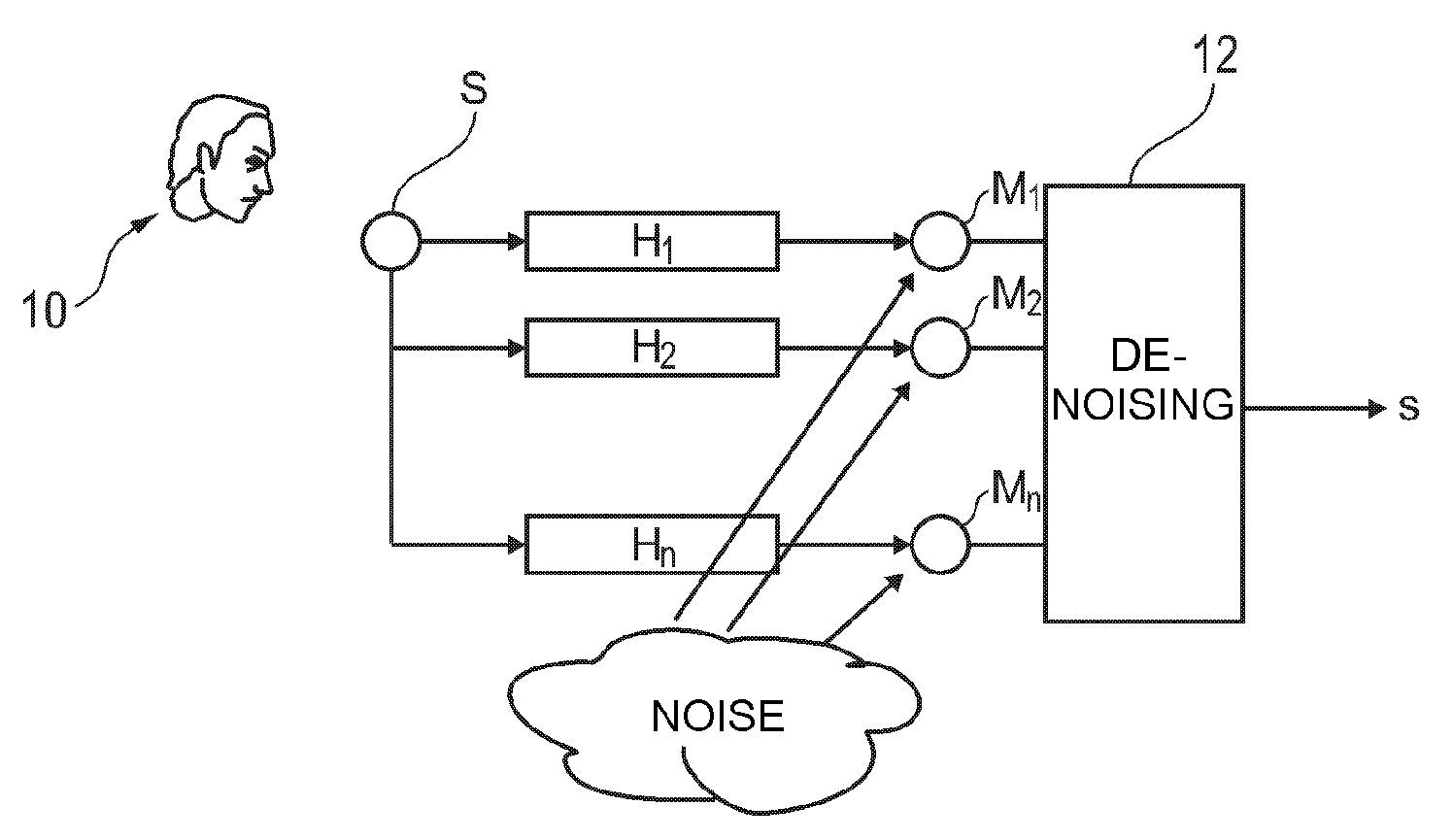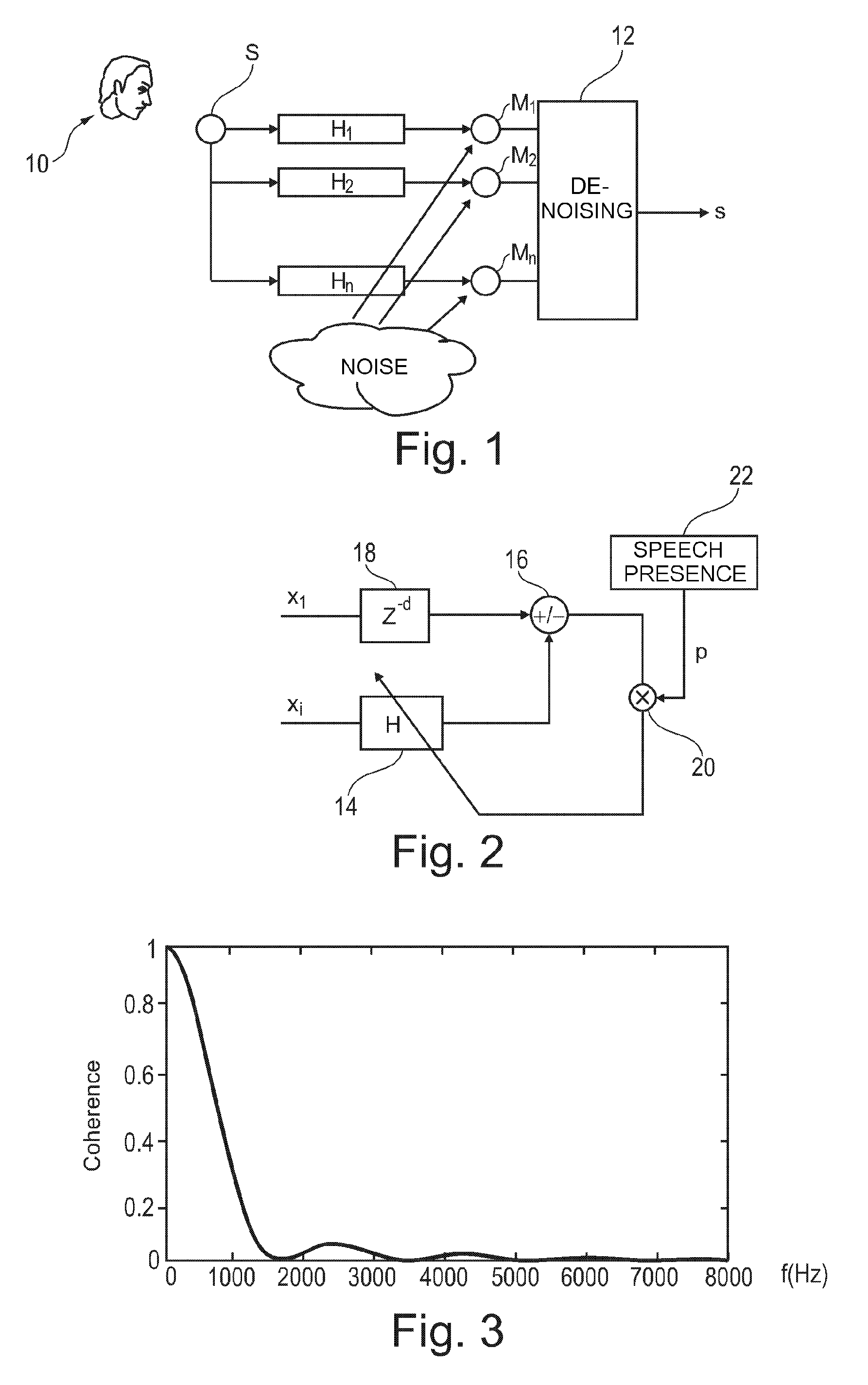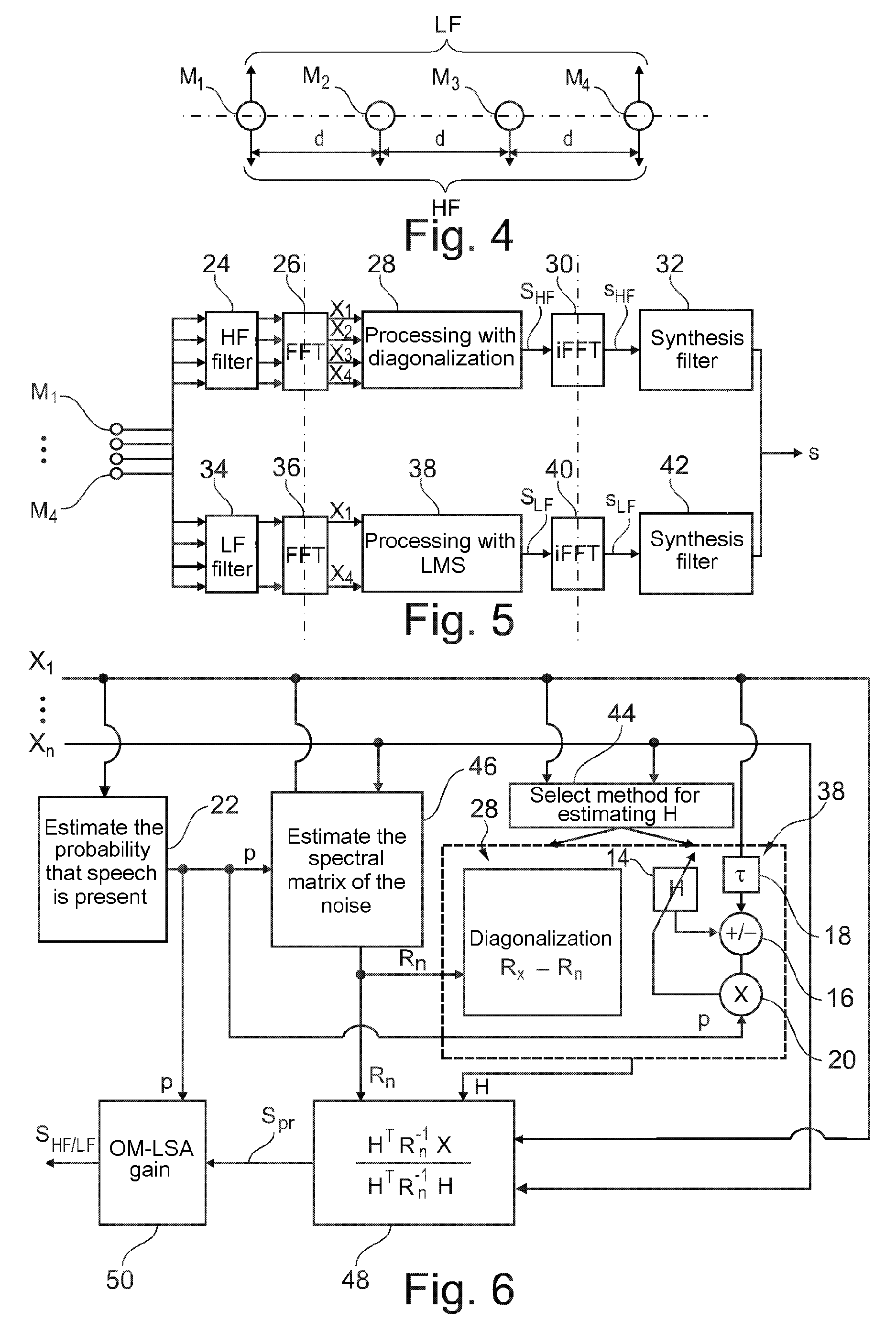De-noising method for multi-microphone audio equipment, in particular for a "hands free" telephony system
a multi-microphone audio and de-noise technology, applied in the field of speech processing, can solve problems such as difficulty in estimating useful parameters for processing
- Summary
- Abstract
- Description
- Claims
- Application Information
AI Technical Summary
Benefits of technology
Problems solved by technology
Method used
Image
Examples
Embodiment Construction
[0047]There follows a detailed description of the de-noising technique proposed by the invention.
[0048]As shown in FIG. 1, consideration is given to a set of n microphone sensors, it being possible for each sensor to be considered as a single microphone M1, . . . , Mn picking up a reverberated version of a speech signal uttered by a useful signal source S (the speech from a near speaker 10), which signal has noise added thereto.
[0049]Each microphone thus picks up:[0050]a component of the useful signal (the speech signal);[0051]a component of the reverberation of this speech signal as produced by the vehicle cabin; and[0052]a component of the surrounding interfering noise in all of its forms (directional or diffuse, steady or varying in unpredictable manner, etc.).
Modeling the Signals as Picked Up
[0053]The (multiple) signals from these microphones are to be processed by performing de-noising (block 12) so as to give a (single) signal as output: this is a single input multiple output ...
PUM
 Login to View More
Login to View More Abstract
Description
Claims
Application Information
 Login to View More
Login to View More - R&D
- Intellectual Property
- Life Sciences
- Materials
- Tech Scout
- Unparalleled Data Quality
- Higher Quality Content
- 60% Fewer Hallucinations
Browse by: Latest US Patents, China's latest patents, Technical Efficacy Thesaurus, Application Domain, Technology Topic, Popular Technical Reports.
© 2025 PatSnap. All rights reserved.Legal|Privacy policy|Modern Slavery Act Transparency Statement|Sitemap|About US| Contact US: help@patsnap.com



